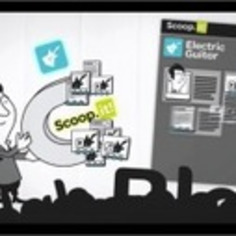The Lean Startup has become somewhat of a bible for Silicon Valley entrepreneurs, but famed investor Marc Andreessen notes that sometimes founders misappropriate the ideas or don’t apply them correctly, resulting in some common problems he outlined.
Research and publish the best content.
Get Started for FREE
Sign up with Facebook Sign up with X
I don't have a Facebook or a X account
Already have an account: Login
Serial entrepreneurship is constant learning.
Here's what I found impacting.
Here's what I found impacting.
Curated by
Guillaume Decugis



 Your new post is loading...
Your new post is loading...


























What I've always find fascinating in Silicon Valley is its capacity to not get stuck in one dominating thought model. The Lean Startup model wa an eye-opener for many entrepreneurs - including me. It's a fantastic model for Web software companies. But as the brilliant recent interview of Elon Musk at the All Things D conference and this other Andreesen interview remind us of: big projects are not always compatible with the lean startup model.
Andreesen also explains why the lean startup model is not an excuse not to do marketing (something that I'm a firm believer of as I had a chance to explain during the last startup product summit) and that accepting failure is not the same as encouraging it - something that reminded of a controversial HBR article on that topic.